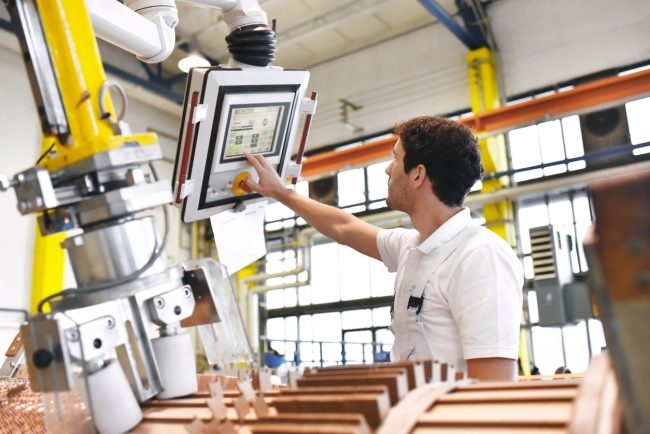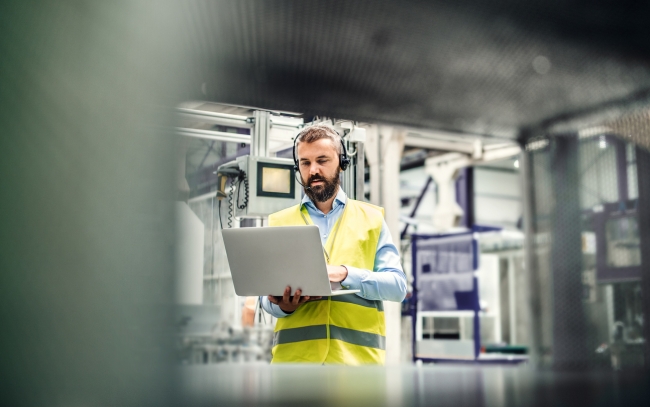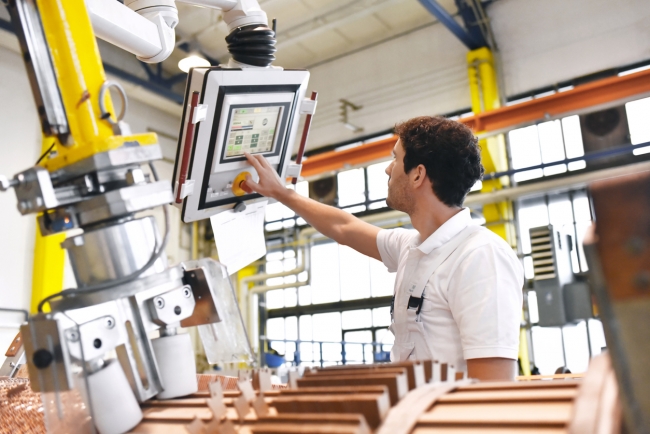£300m funding awarded to improve manufacturing productivity
Businesses with creative ideas to boost the UK’s manufacturing capabilities, including using robotics, AI and augmented reality, are set to receive £300m of joint government and industry funding.
Through the Manufacturing Made Smarter Challenge, the government will invest £147m – backed by further funding from industry – to help businesses implement new technology to boost their manufacturing productivity, enabling them to reach new customers, create thousands of new highly skilled jobs, slash carbon emissions and reduce prices for consumers.
The funding was confirmed by business secretary, Alok Sharma, during the virtually-held London Tech Week (1-11 Sep). The first £50m of funding is being allocated to 14 manufacturing projects involving around 30 small or medium businesses, 29 larger enterprises and nine universities, with the rest of the funds due over the next 5 years.
A company behind one winning project – the Digital Designer Robot – aims to offer machine-to-person ‘digital assistance.’ When a business needs a bespoke product, it will be able to use a digital robot to help design it and upload the design quickly onto a supplier’s website – so the product can then be sampled, prototyped and manufactured by the supplier.
The virtual assistant would also offer expert advice and guidance, by ‘conversing’ with businesses to ask questions, listen to feedback, and provide suggestions. This could reduce the time it takes to manufacture products, as well as cut costs and waste due to a more precise design process.
Alok Sharma, said: “Increasing productivity is vital for any business, and having the right new technologies in place can help manufacturers make better products to compete and thrive. By helping manufacturers to reduce costs, cut waste, and slash the time it takes to develop their products, this multi-million pound uplift will help fire up the cylinders of productivity as we build back better from the pandemic.”
Other winning projects include:
WeldZero – This project will explore the use of robots, sensors and automation to improve accuracy when welding metal parts on production line. The machines will also collect and feedback valuable data to help improve the manufacturing process, leading to stronger and higher-quality parts, as well as quicker production, in industries including automotive and construction.
Smart Connected Shop Floor – GKN Aerospace is leading a cross-sector team trialling digital technologies, including augmented reality headsets for engineers, so manufacturing businesses can guide them through repairs. The project will also use ‘smart’ devices to exchange information between old and modern computer systems.
The Digital Sandwich – Raynor Foods, a UK sandwich supplier who helped supply the NHS during the coronavirus pandemic, is creating a major piece of software where food and drinks businesses can connect online to share valuable data. This information exchange will increase productivity, improve cashflow, help boost food quality and reduce waste within the supply chain. The platform includes small and medium sized enterprises, who don’t usually have access to this kind of technology and will benefit sectors including pharmaceutical, aerospace and automotive.
Dialog – This project, led by Atlas Copco IAS UK, brings together affordable, automatic and human-interacting robots to help machines make quicker and better decisions, making production more efficient. The Manufacturing Made Smarter programme will also support technology SMEs through growth accelerators – partnerships between the government and the private sector where experts will work with businesses to identify barriers to growth and ways to overcome them. It will also create a national network of innovation hubs where businesses can partner or share advice, to help spur growth and creative ideas.
Chris Courtney, challenge director for Made Smarter at UK Research and Innovation, added: “Digital technologies have the power to radically transform how we manufacture and deliver the products and services of today and the future and I am delighted that we have managed to secure the funding for this vital programme. Our ambition is to support the UK to become a leader in the manufacturing industry and the development of the next generation of technology solutions that will shape how the world works.
“The current COVID challenges all sectors are facing only underline the vital importance of manufacturing in the UK across all sectors. There are enormous opportunities to innovate in this area, we have world leading industries, a powerful scientific and research community, a vibrant technology sector and I’m excited to see how this powerful coalition transforms the future of manufacturing.”
This announcement follows the opening of a competition in July under Manufacturing Made Smarter: Digital Supply Chain, where firms of all sizes can apply for up to 70% of the funding they need for industrial research projects.
The government has committed to raising productivity and earning power in the UK by spending 2.4% of GDP on R&D across the UK economy by 2027.
Source: https://zenoot.com/300m-funding-awarded-to-improve-manufacturing-productivity/
Source: Zenoot



